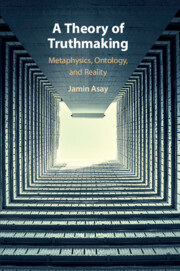Chapter 7 - Analyticity
from Part II - Applications
Published online by Cambridge University Press: 18 April 2020
Summary
A common account of the distinction between analytic and synthetic truths is that while the former are true solely in virtue of meaning, the latter are true also in virtue of the way of the world. Quine famously disputed this characterization, and his skepticism over the analytic/synthetic distinction has cast a long shadow. Against this skepticism, it is argued that the common account comes close to the truth, and that truthmaker theory offers the resources for providing a compelling account of the distinction that preserves the basic ideas behind it, and avoids the standard criticisms (from Quine, Harman, and Boghossian) facing the distinction. The thesis is that we can formulate an analytic/synthetic distinction in terms of the distinction between truths that require no ontological accounting whatsoever versus those that do. The ontological accounting required for analytic truths is trivial – any set of books will suffice. What distinguishes the synthetic truths is that they require some form of substantive ontological accounting.
Information
- Type
- Chapter
- Information
- A Theory of TruthmakingMetaphysics, Ontology, and Reality, pp. 136 - 149Publisher: Cambridge University PressPrint publication year: 2020
